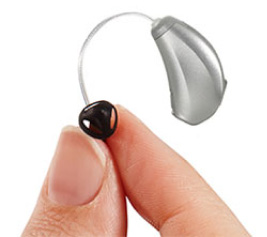
We regret to inform you that The Tinnitus Clinic Ltd has now ceased to trade and the Directors are in the formalities of placing the company into liquidation. Should you require help with a hearing aid, please refer to the manufacturer directly, or approach your local hearing care specialist for assistance. Neuromod (Lenire) can be reached through their website www.lenire.com or 00353 1253 1444. Starkey can be reached at www.starkey.co.uk or 0800 042 0000. For Signia, Rexton or Widex devices contact www.wsa.com
No two people’s experience of tinnitus is the same. That’s why, at The Tinnitus & Hearing Clinic, our Initial Assessment and consultation focuses on you, your tinnitus, the impact tinnitus has on your quality of life and how we can alleviate your symptoms.
TDT provides a bespoke range of therapies that are selected to meet your personal treatment requirements. Taking into account your tinnitus acoustic profile which was identified at the Initial assessment, and your very personal experience of tinnitus, Tinnitus Desensitisation Therapy uses a number of distinct therapeutic techniques together. These serve to control your tinnitus awareness with the long term goal of encouraging the brain to filter out the tinnitus perception from your consciousness. This filtering process is known as habituation.
TDT helps you to take control of the impact that tinnitus is having on your life. The therapy aims to redirect your brain’s attention away from the tinnitus signal and help the natural habituation process to occur so that, over time, you become progressively less aware of your tinnitus symptoms.
The supporting activities which we ask you to engage in will also help you to cope with the day to day emotional impact of your symptoms.

At the initial assessment appointment, your audiologist will have discussed TDT with you and have identified the right device for your personal acoustic tinnitus profile. This sound enrichment therapy is designed to sustainably reduce the focus that you are giving to the tinnitus sounds.
As an independent company we can select the best device for you from all manufacturers. We constantly look for improvements in the devices and may change our recommendation if a better device becomes available.
Tinnitus Desensitisation Therapy™ will work best when you apply the self management programme we plan for you.
This may include relaxation exercises, behavioural therapy or additional sessions of Tinnitus Psychodynamic counselling which has been shown to be especially helpful to those with long standing tinnitus symptoms.
It is also important that you take care of your devices, ensuring that they do not get blocked with wax for example.
At the last appointment of your therapy, we will provide you with guidance on stabilising the improvements that you have made and re-evaluating the prognosis of your tinnitus for the future. Based on your needs, we will offer advice regarding exercise, and food and drink habits related to tinnitus as well as encouraging you to continue with the self management programme we have agreed with you.
*The patient’s severity of tinnitus was measured using the THI international standard method. For further information on the categories of tinnitus click here.
“Tinnitus Desensitisation Therapy for Tinnitus: a review of clinical outcomes in an independent audiology practice setting” by Mark Williams BSc, MSc, Dip CCA, RHAD


As tinnitus becomes more noticeable in a quiet environment, it may affect your sleep patterns: either preventing you from falling asleep or waking you up. If you are anxious about your tinnitus, this can lead to negative thoughts, raised stress levels and changes in behaviour.
In turn, this can make the tinnitus seem more noticeable and intrusive, especially when you are trying to sleep. Sleep therapy involves reflecting on your beliefs about sleep, sleep record, and evaluating those negative automatic thoughts about tinnitus. The counselling process aims to change attitudes to tinnitus, and ultimately improve your sleep quality.
You may have noticed that your tinnitus is worse if you are anxious or tired. The Tinnitus Clinic audiologists will teach you relaxation techniques to help reduce the invasiveness of your tinnitus, its effects on your stress levels and everyday life. Our audiologists will train you in breathing and muscle relaxation techniques, and show you how to keep a record of your relaxation exercises.
Behavioural Therapy is a form of treatment for tinnitus that examines how thought processes adversely affect behaviour and how you can change those thoughts. It is a method for reducing the negative emotional reaction to tinnitus and often serve to reduce the associated anxiety. Behavioural Therapy uses relaxation, cognitive restructuring of thoughts, and uses situational examples to help improve your feelings about your tinnitus
If you have further questions about Tinnitus Desensitisation Therapy™, please take a look at our Patient Stories or contact The Tinnitus Clinic.